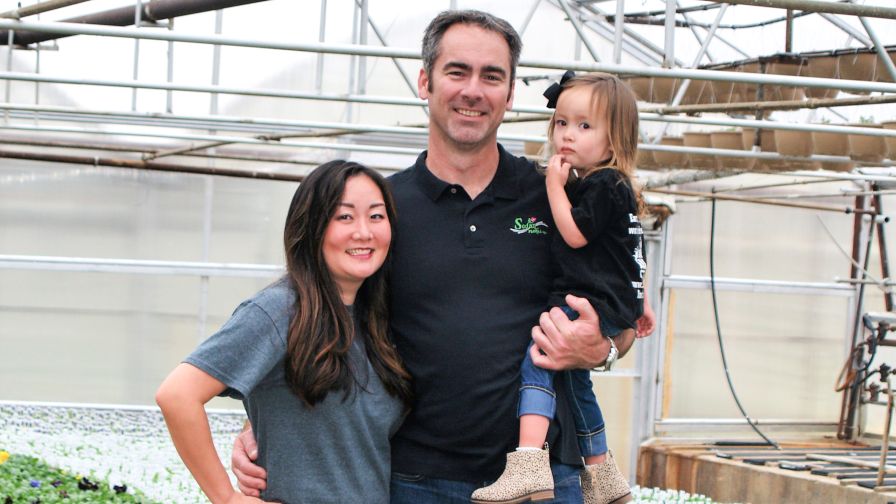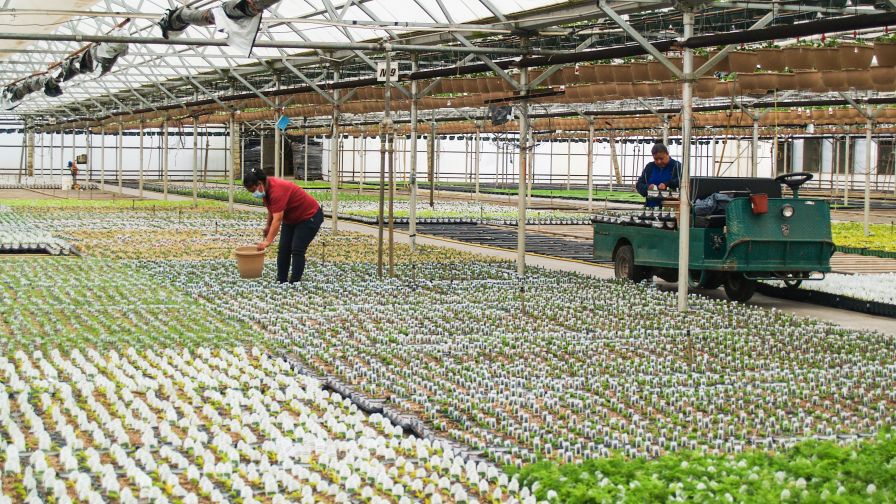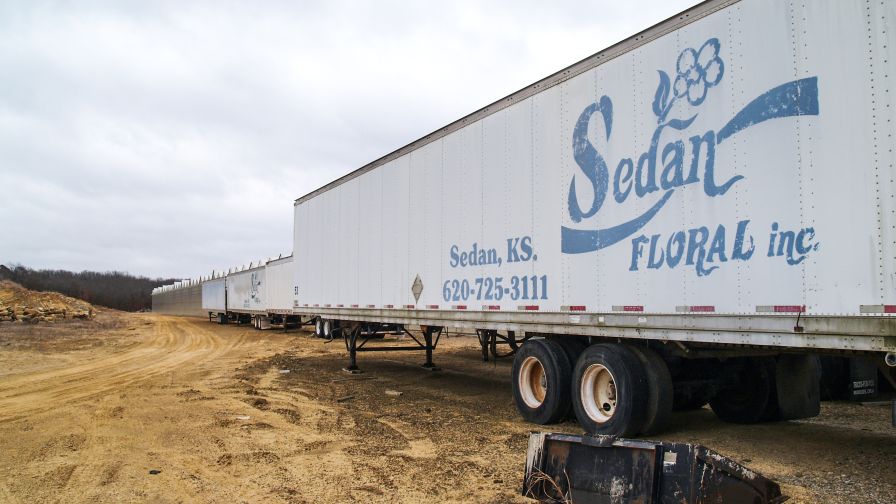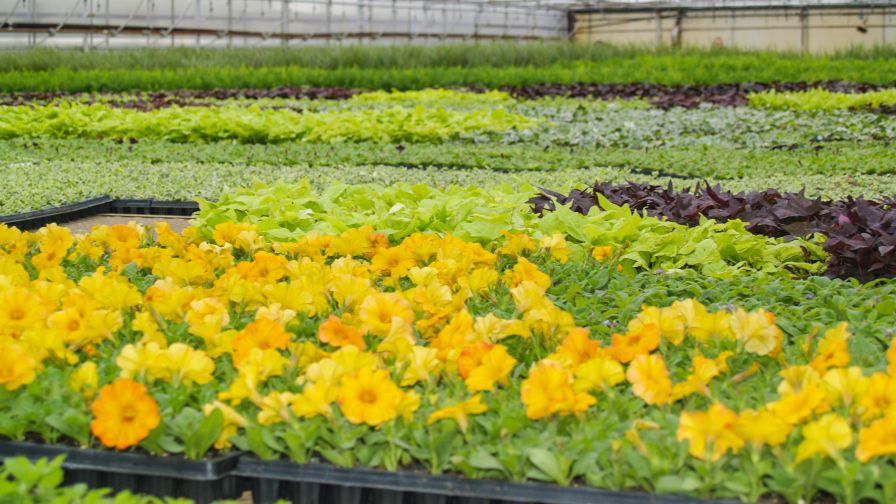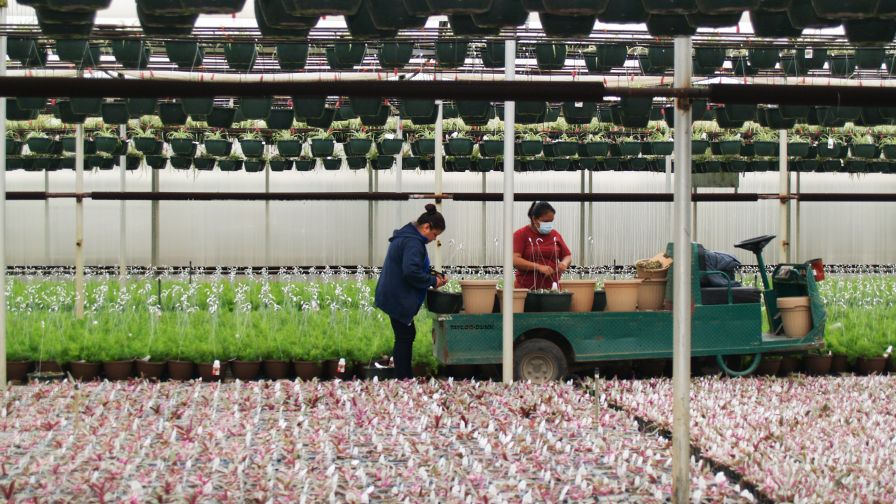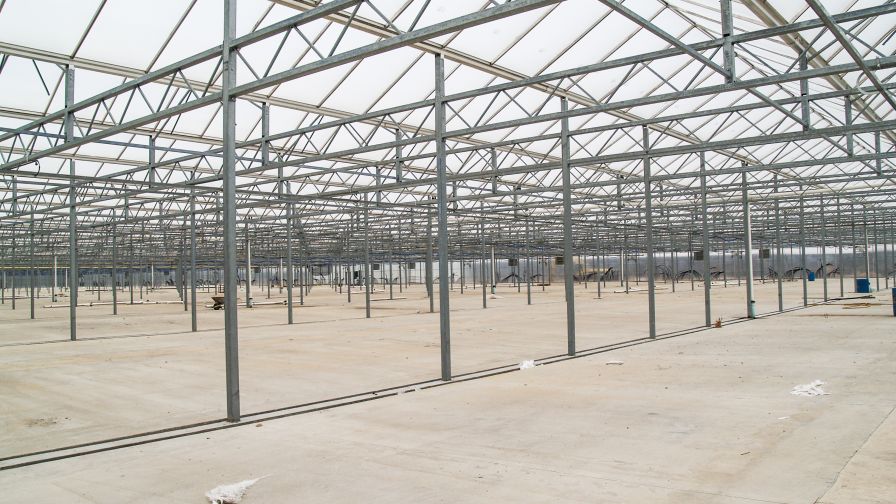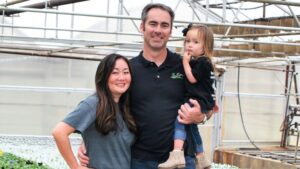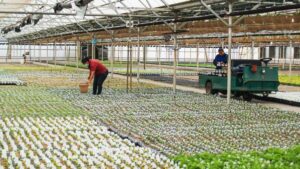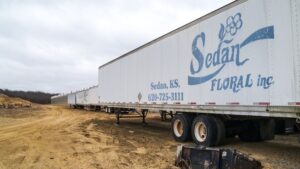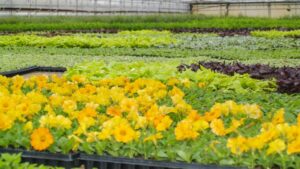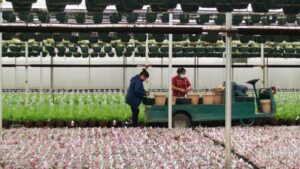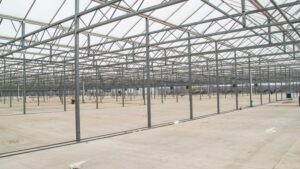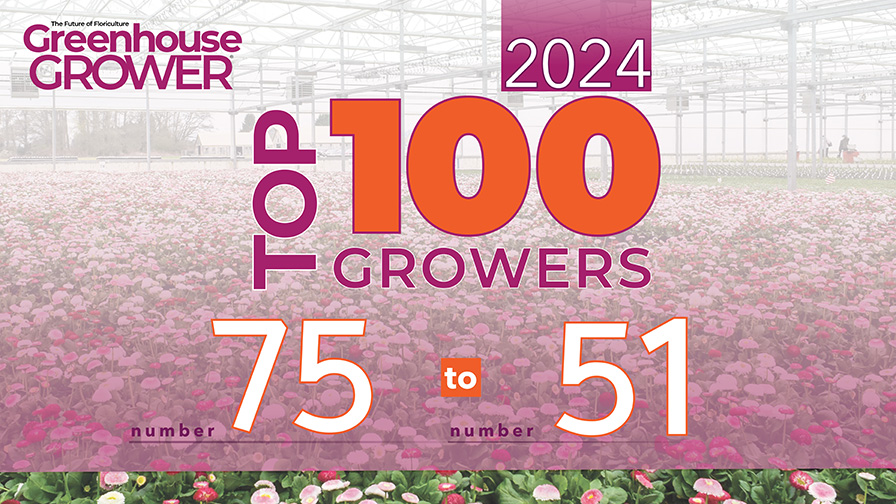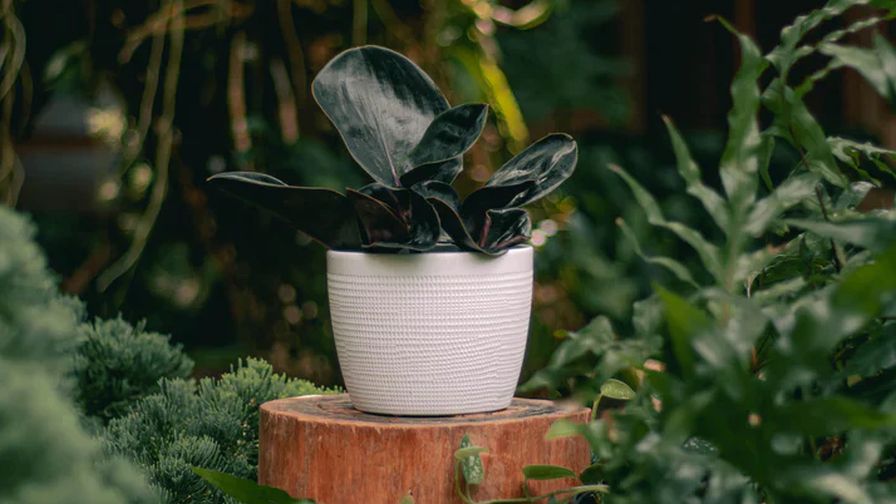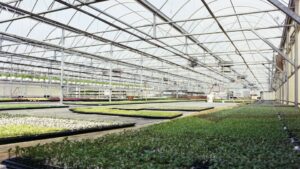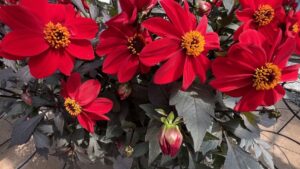How Sedan Floral Tackles Efficiency Unconventionally
Albert Einstein once said you can’t solve a problem with the same type of thinking you used to create it. The team at Sedan Floral has become problem solvers. As they weed out inefficiencies in their operation, they’re learning that the solutions to some of the most insurmountable challenges lie in taking a novel approach that works for their operation.
Solve One Problem, Solve Others You Didn’t Know You Had
Sedan Floral sprawls across more than 19 acres in Southeast Kansas near the town of Sedan. The operation has been in business nearly 75 years, starting from its early roots as a flower business. President/CEO Jonathan Cude and his wife Ali are the third generation to join the business. Daughter Riley, who has starred in some of Sedan Floral’s marketing campaigns, is the fourth generation, and from the early age of two she is already exercising her leadership skills and taking an interest in the business.
“She loves the plants and mostly running around the greenhouse telling people what to do,” Ali says.
In an operation the size and age of Sedan Floral, problems often compound if left unaddressed, and Jonathan knows it, so he is vigilant about addressing them as soon as possible. Conversely, he has found that solving one problem can also resolve others at the same time.
“We watch for these types of things in our operation,” he says. “We may not be able to address them next week or next month, but they go on a list and eventually we get them done. When they do get done, we have a win, and we try to figure out how to leverage that win.”
Cude has found that most times it is never one thing that gets the job done. It is the collective things you do that add up, he says, and sometimes you must let go of old ways and try something different, despite your fears.
Prove Your Changes Are Efficient and Employees Buy In
Ali Cude has an undergraduate degree in nutrition, a Master’s in administration, and she is a pharmacist. She spent one year helping the Sedan Floral team during the busy shipping season and found that the inventory system was casual at best, with a lot of estimating and no tracking of unusable product. She vowed never to go through that nightmare again.
In the pharmaceutical sector, inventory is tracked down to the last item. Ali determined to apply that same approach to Sedan Floral’s inventory process. No more running over a tray of product or throwing ruined plants in the garbage without keeping a record of what happened to them. The whole system hinged on accuracy in accounting for product, and Ali knew obtaining buy-in from a team used to old ways of doing things wasn’t going to be easy. She says even Jonathan was skeptical, at first.
“I convinced them to try it for one season,” Ali says. “We made many of our changes during that season. Things went so smoothly after the first season that no one wanted to go back to the old way. They were sold on the process. That’s not to say there weren’t some teaching moments and a learning curve involved with transitioning to the new way.”
Since that first season of trying the new system, Ali says the team has only improved on it from there. She can now track product down to the last leaf through an in-house system she and Jonathan created. She says the new way of doing things has greatly improved the orders going out. It’s easier to optimize truck loads. Racks don’t go out empty. And, customers are happier because they get what they ordered. She’s also found the system helps with invoicing — not having to change the invoicing right before the truck goes out is a huge timesaver.
Admittedly, Jonathan and Ali say their solution may not be the best fit for other operations. In fact, other operations may be more advanced in inventory tracking. But, what matters most is that the solution works for them.
“The system works extremely well and fits in with our production philosophies,” Jonathan says. “We didn’t take a solution from the world. We found something to solve the problem that fit us.”
Team, Not Technology, Advances Business
Jonathan emphasizes the importance of the Sedan Floral team in the problem-solving process and in implementing solutions.
“So much of what we have been able to do has been the by-product of people willing to show up and do the job,” he says. “It is not off-the-shelf technology we have bought that has moved us forward. It has all come from our team continuing to do a good job of systematically and incrementally solving problem after problem to remove bottlenecks.”
Sometimes there are problems that stare a grower in the face every day that can be easily solved — it’s just a matter of hitting on the right approach. It was while trying to solve a problem with his team that Jonathan found a unique solution that may make a big difference in some of their lives. One challenge with efficiency was matching up correct product with what was on the purchase order. Jonathan decided to buy an eye chart to see if vision issues were playing into the problem. After administering the test to his employees, he found that somewhere around 20% of his crew needs eyeglasses, or their current eyeglasses were in bad need of an update. Now, he’s working on a solution to make sure his team has access to the eyecare they need, and he thinks it will not only help with pulling orders, but it will also be a life-changing experience for some of them.
What You Do When Solutions Aren’t Forthcoming
Sometimes there aren’t immediate solutions to a problem, and you must do what it takes with short-term steps to keep things moving until a more permanent answer presents itself. Take trucking issues, for instance. Sedan Floral has had its struggles with driver shortages and high freight costs like everyone else. Jonathan says he either had a crystal ball or “got stupid-lucky” when he made the decision to buy three delivery trucks in April 2020. Fast forward to 2021 with driver shortages and skyrocketing freight costs. To top it off, Sedan Floral’s regular carrier decided to ghost them and leave them in a lurch before the spring season. The box trucks became a lifesaver that increased shipping capacity by 40%. Jonathan, who received his Commercial Driver’s License in 2014, now puts it to good use, covering more than 12,000 miles during the season making deliveries (in a semi-tractor and 53-foot trailer). Some might say that is a waste of time for a CEO of a company, but he sees it differently.
“It put me at the forefront of the action,” he says. “I saw what was coming off the trucks and going into stores, and I was able to discuss things firsthand with store owners. Upper management doesn’t often get the chance to interact with customers in that way.”
Who has time in the middle of spring to make deliveries and stand inside a garden center to see what it is dealing with?
“I don’t have any more time than anyone else at this time of year,” Jonathan says. “I do it because I don’t have a perfectly resolved shipping solution. There’s a positive and a negative aspect to it. I get to interact with customers, but on the other hand, when the CEO of a Top 100 operation is driving a truck, you know there is a clear and real shortage of transportation solutions.”
Jonathan is now transitioning people from within the company to be seasonal drivers, which has resulted in a positive change. He says he is also grateful that one vendor, Stone Trucking, decided to keep working for Sedan Floral. One benefit for the vendor was that he could take on shorter routes that allowed him to spend more time at home. All these efforts have helped, and in 2021 Sedan Floral delivered more product with fewer outside delivery companies by simply taking care of things in-house.
All in all, Sedan Floral isn’t much different than other greenhouse operations when it comes to the challenges it faces. However, after finding that solving problems with novel approaches works, they might be the first to agree with Einstein’s quote.
Automate or Stagnate — Maybe Not
It’s a rare grower that doesn’t struggle to find workers, but labor isn’t an issue right now at Sedan Floral. Some of the current team members joined the company before Cude was born and have stayed with it ever since. Cude also uses H-2A labor, along with local workers, which he says aren’t as hard to find in a small community.
When it comes to technology, Cude says not struggling to find labor changes your perspective on when and if you need technology.
“We’re embracing technology where we can and where it makes sense,” he says. “But it is not necessarily our first go-to, and before we purchase something, we’re asking ourselves if we need it. If we can’t answer an unequivocable yes to that question, we don’t buy it.”
Cude says the strategies at Sedan Floral have mostly revolved around efficiencies. What can the operation do to be more efficient? For some, the answer would be to automate and eliminate people. But Cude says he is somewhat troubled by that theory because there are still some things that are difficult to automate and require the human touch.
“We can’t forget that a lot can be accomplished by just working hard. By that, I mean working smarter, working more efficiently, working faster, and showing up every day,” he says. “We have made huge strides with our team by trying to do these things. I think we have been successful because not only have we paid our employees more than most of our competitors, but we have also remained viable as a company.”




